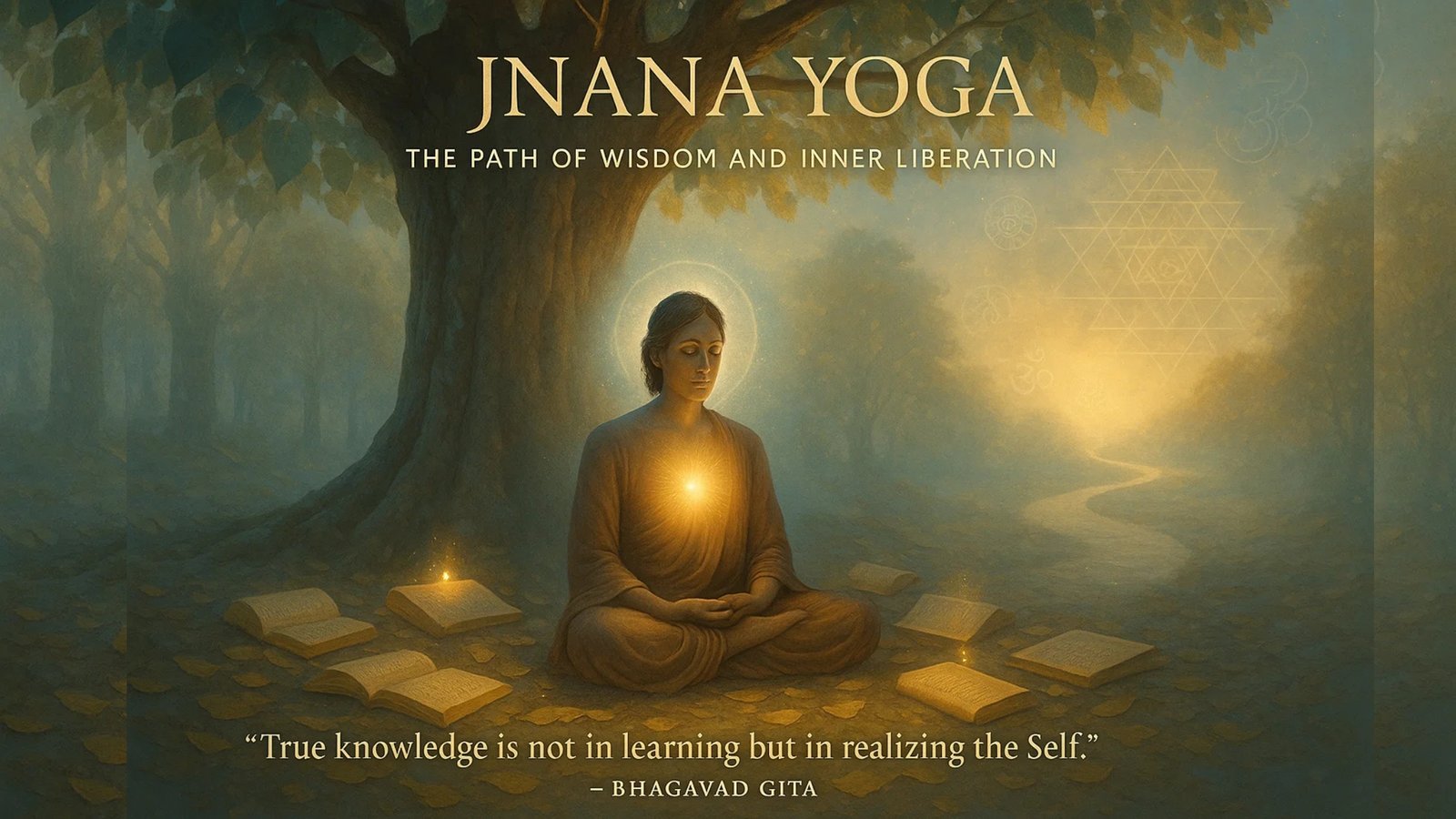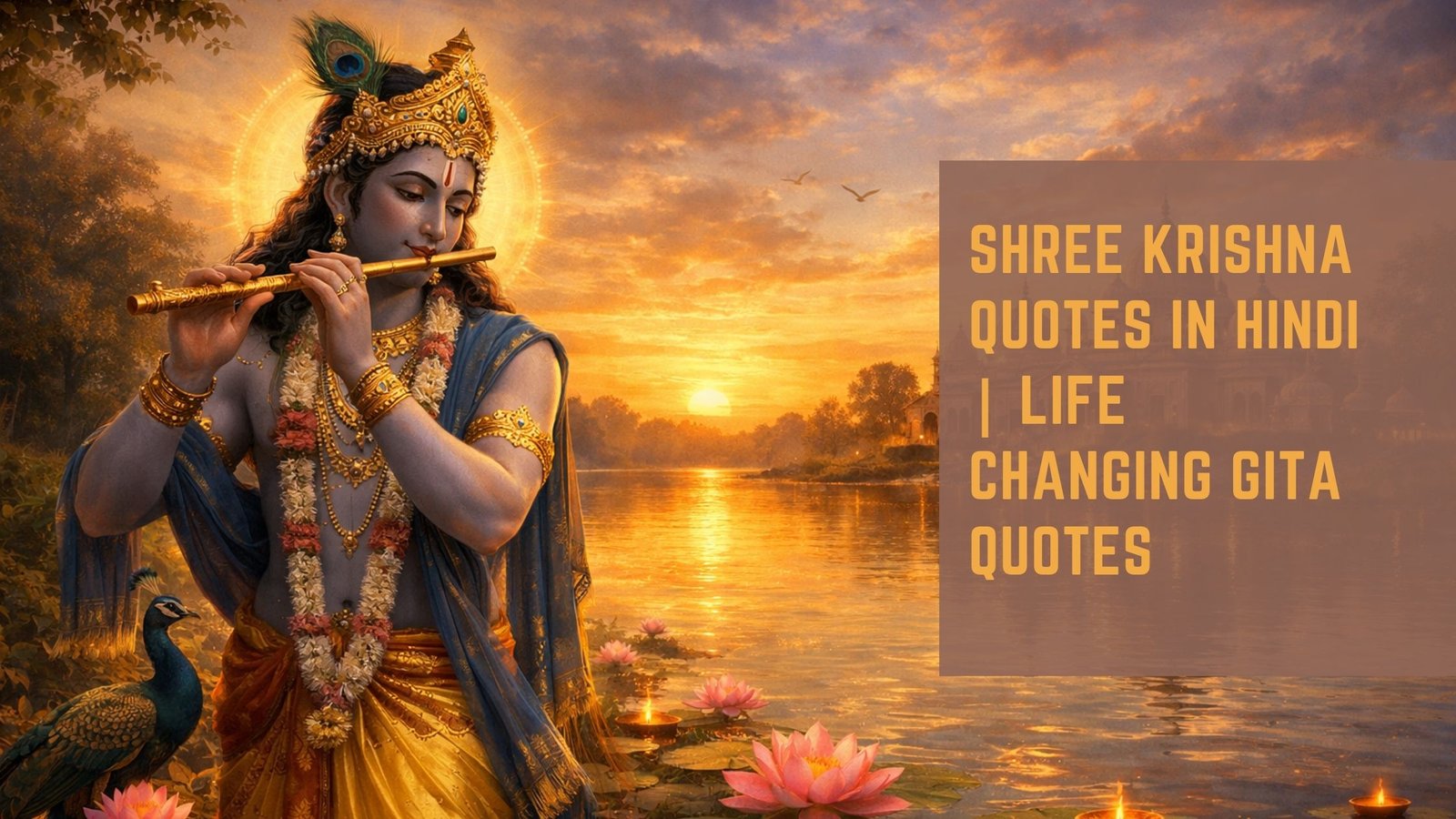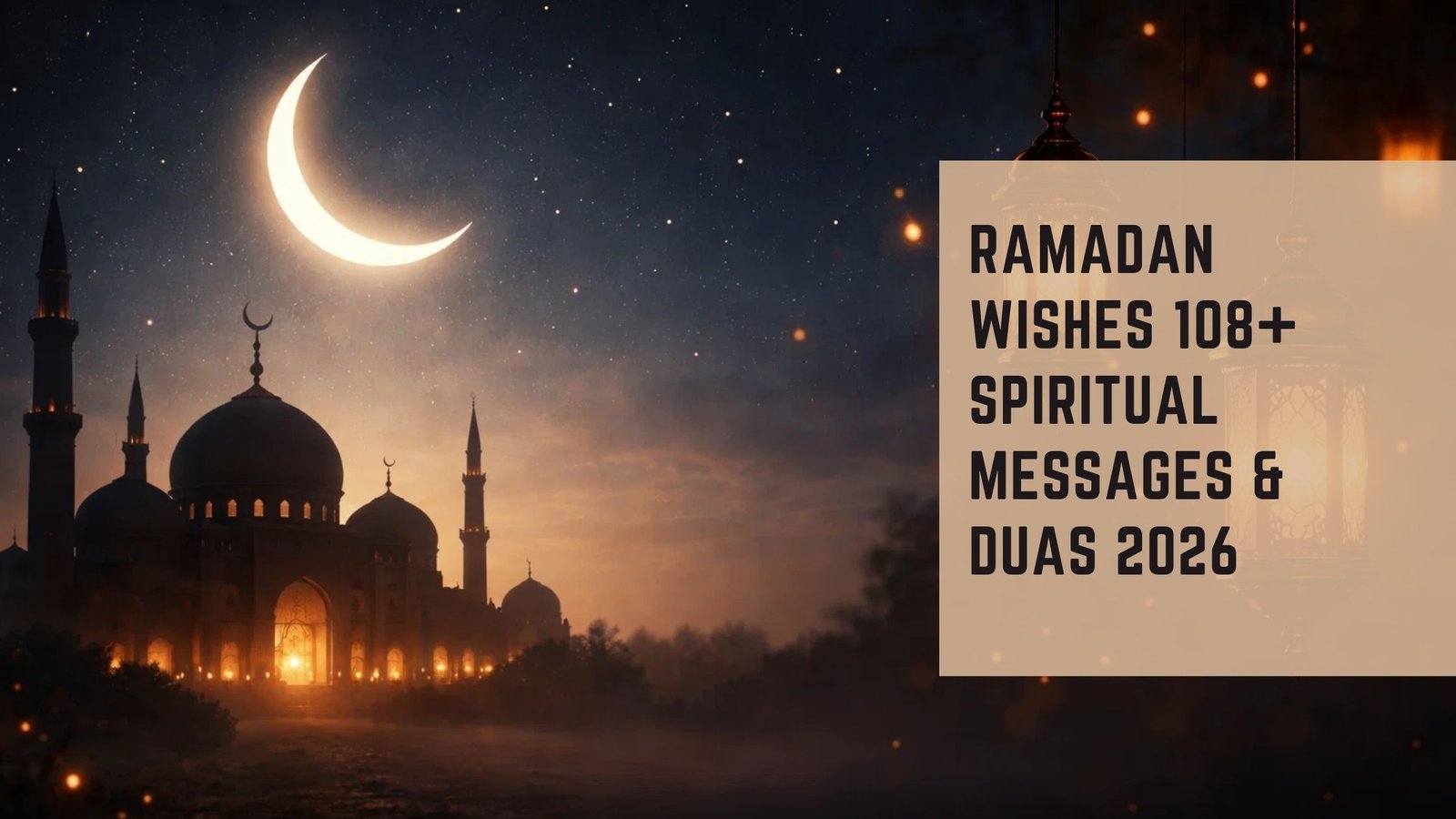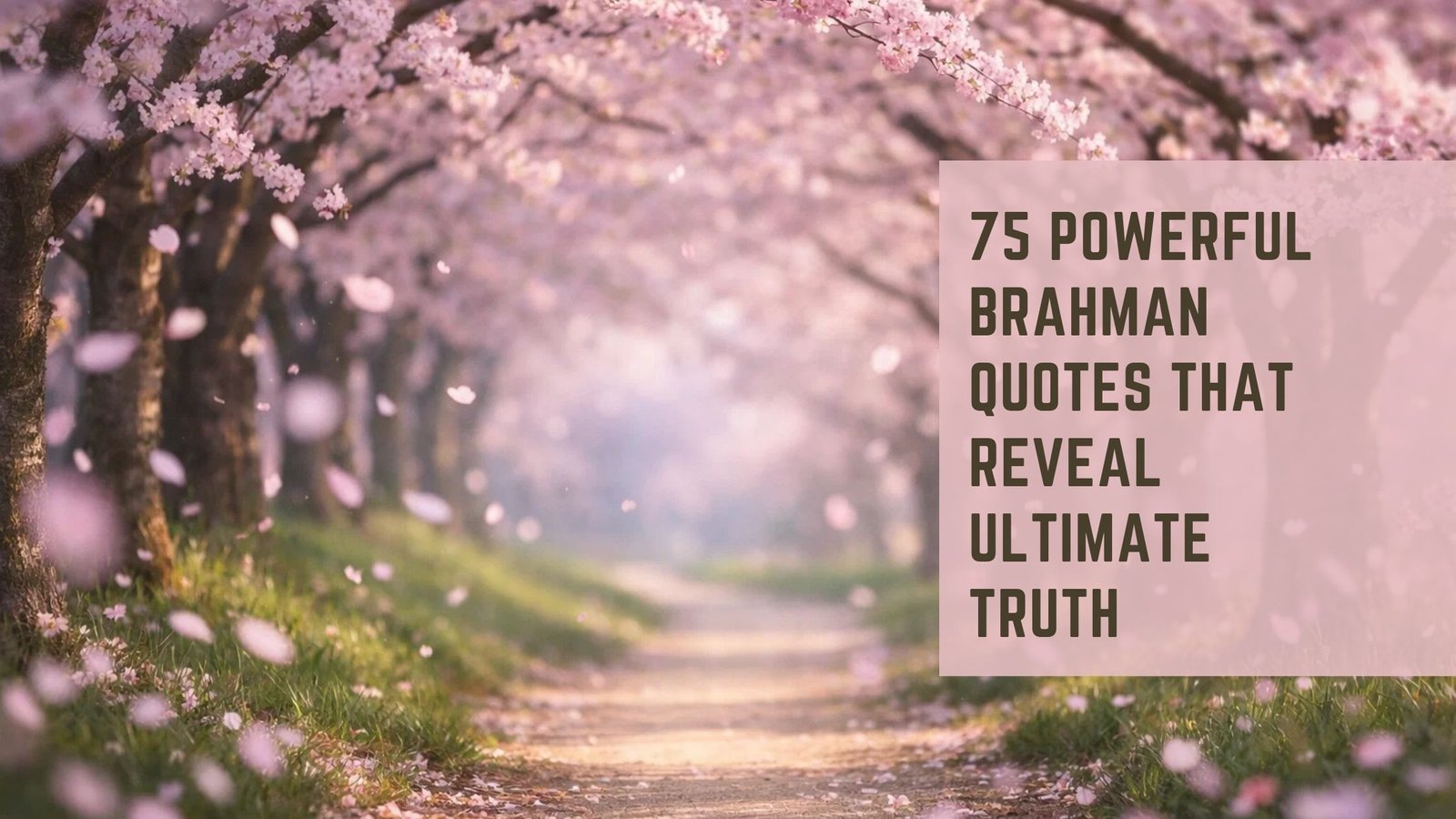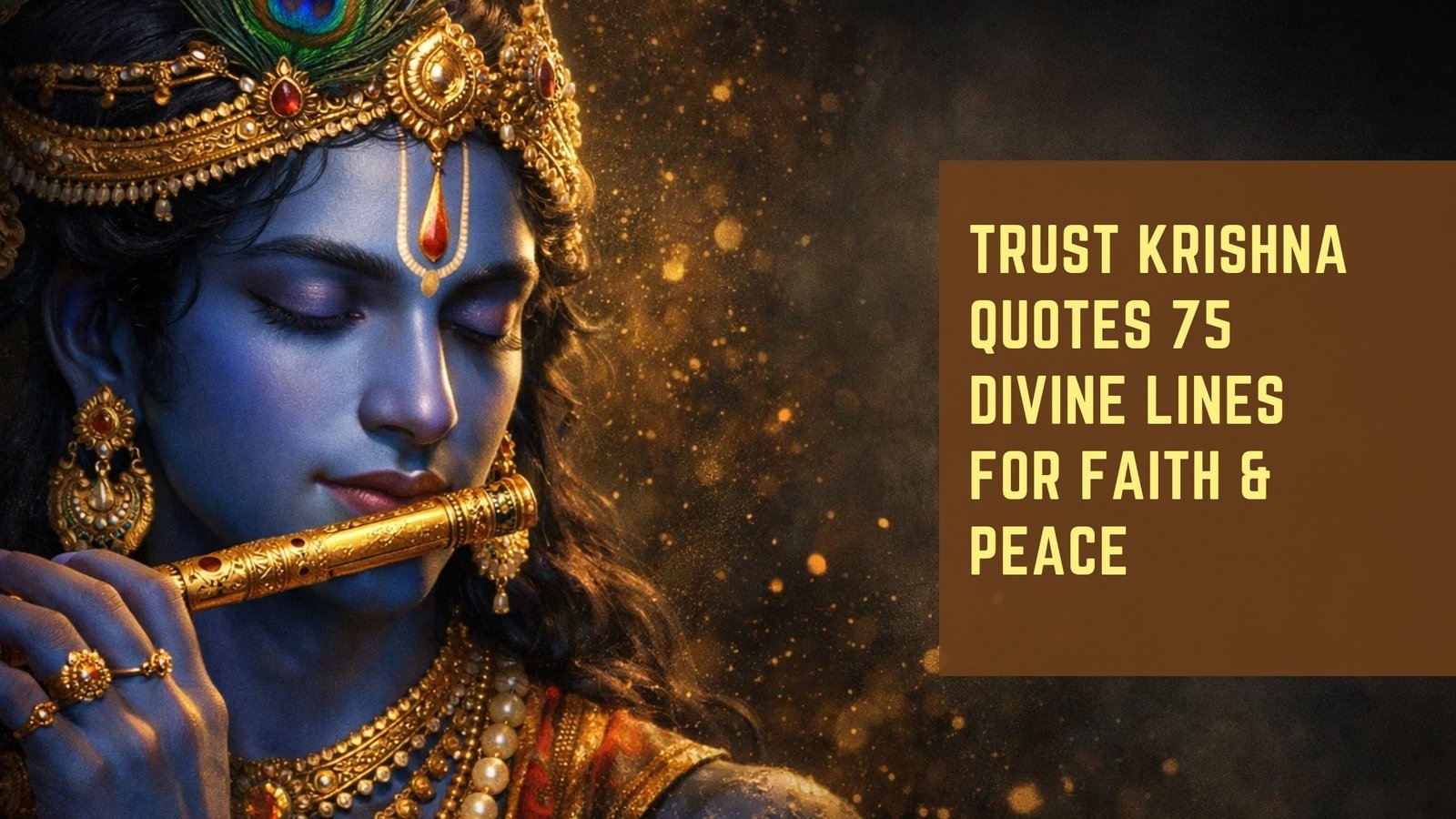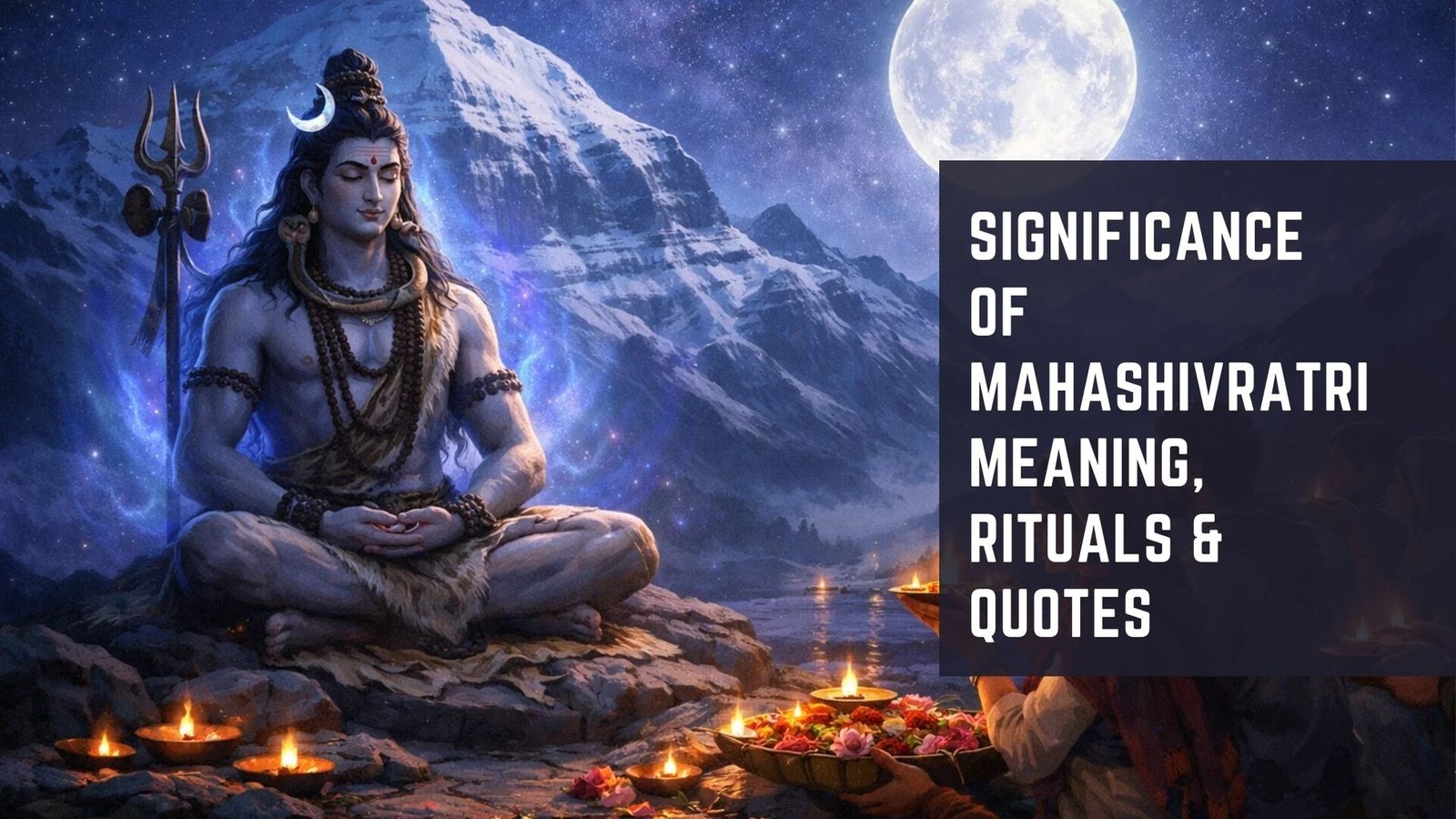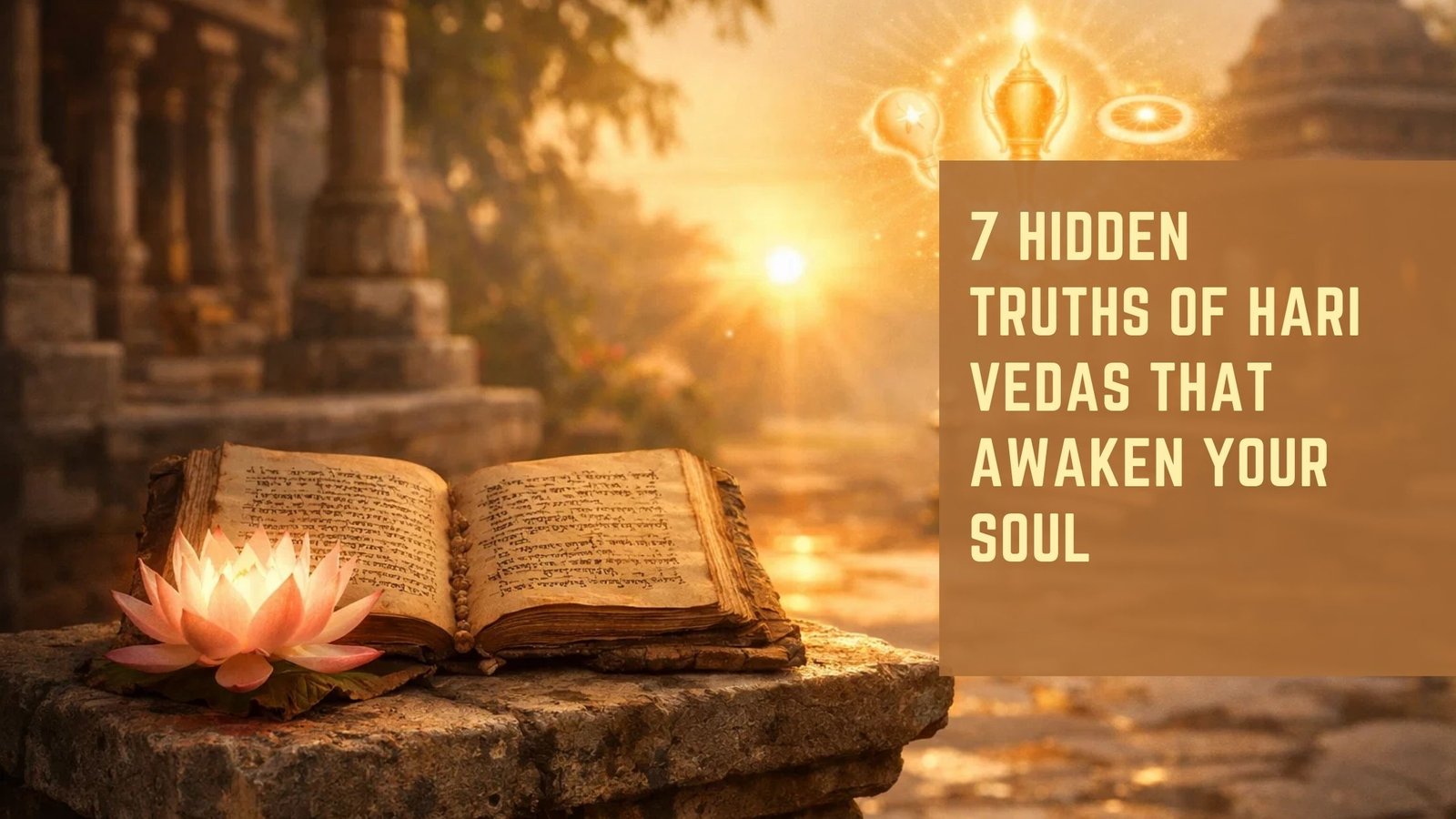In the vast ocean of spiritual traditions, Jnana Yoga emerges as the path of pure knowledge — a profound inquiry into the nature of the Self. It is the yoga of wisdom, discernment, and self-inquiry. Rooted in timeless scriptures like the Bhagavad Gita and the Upanishads, Jnana Yoga is not just intellectual theory but a transformative spiritual journey that transcends mental and emotional limitations.
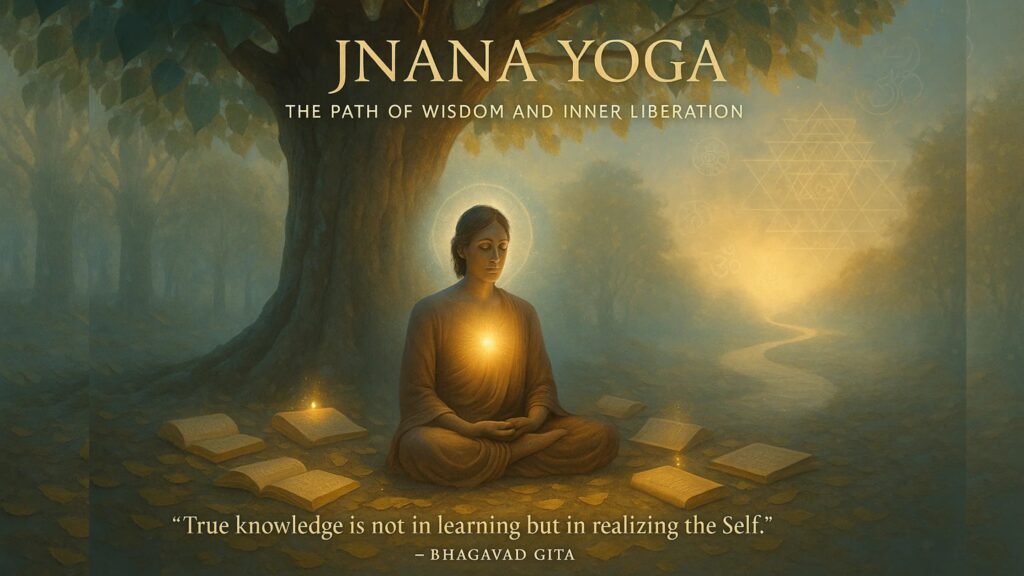
“True knowledge is not in learning but in realizing the Self.” – Bhagavad Gita
“आत्मानं विद्धि।” (Know thyself.) – Upanishads
While Bhakti Yoga is devotion and Karma Yoga is action, Jnana Yoga is the sacred science of inner exploration — the art of stripping away illusion to realize the soul’s eternal nature.
Table of Contents
Jnana Yoga and the Emotional Experience
Every human being moves through waves of emotion: love, fear, anger, grief, joy, and hope. These emotions often define our identity — but in Jnana Yoga, one learns to observe them without attachment.
When sorrow arises, the seeker asks:
“Who is it that suffers?”
This is not denial but spiritual clarity.
“ਤੂੰ ਆਪੇ ਬੀਜੁ ਆਪੇ ਹੀ ਖਾਹੁ ॥”
(You yourself sow, and yourself harvest your actions.) – Guru Granth Sahib
“You are not the body. You are not the mind. You are the eternal witness of all that changes.” – Adi Shankaracharya
This method of inquiry doesn’t reject emotions but transforms them. It helps us see that behind every feeling is a silent observer — untouched and eternal.
The Discipline and Practice of Jnana Yoga
This requires mental purity and inner strength. Like a swordsmith sharpens metal, the seeker sharpens awareness through deep contemplation.
The Four Pillars of Jnana-Yoga:
- Viveka (विवेक) – Discernment between the real and unreal
- Vairagya (वैराग्य) – Detachment from sensory pleasures
- Shat-Sampat (षट्सम्पत्ति) – Six inner virtues: calmness, control, endurance, faith, focus, and balance
- Mumukshutva (मुमुक्षुत्व) – Burning desire for liberation
“As the fire burns the wood, so does the fire of knowledge burn all ignorance.” – Bhagavad Gita 4.37
“ज्ञानाग्निः सर्वकर्माणि भस्मसात्कुरुते तथा।”
(The fire of knowledge reduces all actions to ashes.) – Bhagavad Gita
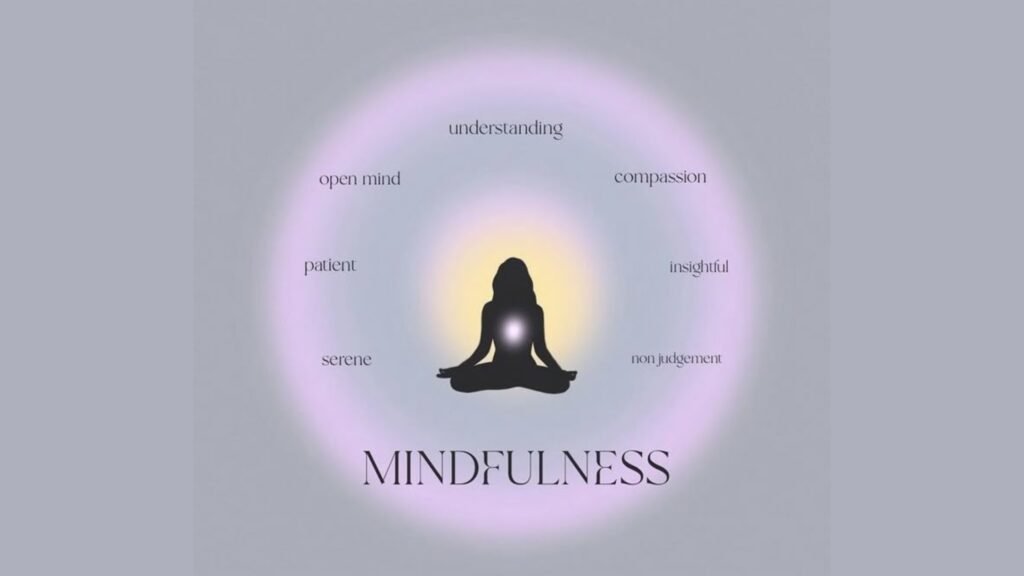
Wisdom Yoga in Practical Life
Many believe Jnana Yoga is reserved for monks. But in truth, it is a path open to everyone — especially those who face the inner battles of daily life.
- Heartbreak? Ask: Was it love, or attachment?
- Failure? Reflect: Is your worth defined by results or presence?
- Anxiety? Observe: Is this my true Self or a wave passing through the mind?
This form of yoga nurtures mental clarity, emotional balance, and spiritual detachment, all without isolating oneself from the world.
“Be in the world, but not of the world. This is the wisdom of the seer.”
“ਜੋ ਬ੍ਰਹਮੰਡੇ ਸੋਈ ਪਿੰਡੇ ਜੋ ਖੋਜੈ ਸੋ ਪਾਵੈ।”
(What is in the cosmos is within the body; the one who seeks, finds it.) – Guru Nanak Dev Ji
Complementary Paths: Wisdom Yoga and Other Yogas
Jnana-Yoga does not exist in isolation. It gracefully integrates with other yogic paths:
- With Bhakti Yoga, it transforms devotion into divine realization.
- With Karma Yoga, it removes ego from action.
- With Raja Yoga, it enhances stillness for deeper reflection.
This holistic blend ensures that the path of knowledge remains grounded, compassionate, and balanced.
“ज्ञानयोगेन सांख्यानां कर्मयोगेन योगिनाम्।”
(Some realize the Self through knowledge, others through selfless action.) – Bhagavad Gita 3.3
Liberation through Wisdom Yoga
The ultimate goal of Jnana Yoga is Moksha — liberation from the cycle of birth and death. This is not a distant afterlife but a state of awakened awareness here and now.
“He who sees the Self in all beings and all beings in the Self never turns away from It.” – Isha Upanishad
In this realization:
- Sorrow arises, but suffering ends.
- Joy arises, but ego doesn’t.
- Silence becomes sacred, and life becomes luminous.
“अहं ब्रह्मास्मि।” (I am Brahman – the Absolute Reality.) – Brihadaranyaka Upanishad
Quotes Across Traditions on Self-Knowledge
“Self-knowledge is the beginning of all wisdom.” – Socrates
“He who has known the Self has known all.” – Chandogya Upanishad
“Wisdom is not filling the mind with facts, but freeing it from ignorance.” – Swami Vivekananda
“स्वयं को जानना ही सबसे बड़ा ज्ञान है।” – आत्मवचन
“ਆਪਣੇ ਆਪ ਨੂੰ ਜਾਣਨਾ ਹੀ ਸਭ ਤੋਂ ਵੱਡੀ ਸਮਝ ਹੈ।” – ਅਧਿਆਤਮ ਵਾਕ
Conclusion: The Silent Revolution of Jnana Yoga
To walk the path of Jnana Yoga is to step into light — not borrowed knowledge, but awakened truth. It is a silent revolution, where every question asked leads not outward, but inward.
It is a path for thinkers, seekers, and modern-day warriors of truth who dare to ask:
Who am I? What is real? What is eternal?
“The one who knows others is wise. The one who knows himself is enlightened.” – Lao Tzu
Let Jnana Yoga illuminate your inner world — calming your storms, dissolving illusions, and guiding you from confusion to clarity, from bondage to bliss, from darkness to divine light.
✨ Begin your journey deeper into the timeless truths of the Gita — explore the Essence of the Gita to uncover the wisdom that awakens the soul.
